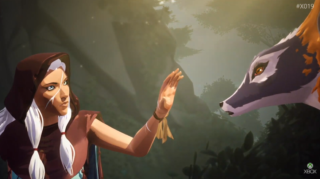The gaming world is reeling from the news: Everwild, the visually stunning adventure game in development at Rare, is reportedly no more. What’s more, this news comes alongside reports of significant layoffs not just at Rare, but across the entire Xbox division. For those of you who were captivated by the game’s art style and the promise of exploring a vibrant, interconnected world, this is definitely a gut punch. It begs the question: What does this mean for Rare, for Xbox’s future game development strategy, and for other ambitious gaming projects out there?
The Cancellation of Everwild
Reports and Sources Confirm Cancellation
So, how solid is this news? Well, numerous sources, including some pretty reputable gaming news outlets, are citing inside information that Everwild has indeed been canned. Apparently, the project was facing some serious developmental hurdles, and perhaps more crucially, a lack of clear direction. I mean, we’ve all been there, right? Starting a project with a burst of enthusiasm, only to realize later that… uh… where are we actually going with this?
Impact on Rare Studio
Let’s be real, the cancellation of Everwild is a massive blow for Rare. Remember GoldenEye 007? Banjo-Kazooie? These are legendary games! Rare has been pouring their heart and soul into Everwild for what feels like ages. You can’t help but wonder what the future holds for this studio now. Is this a temporary setback, or a sign of bigger changes to come? Hopefully, they’ll bounce back stronger than ever, maybe revisit some old favorites? Fingers crossed.
Xbox Layoffs and Restructuring
Widespread Layoffs Across Microsoft Gaming
Okay, this is where it gets a little scary. The cancellation of Everwild isn’t happening in a vacuum. There are reports of widespread layoffs affecting different divisions within Microsoft’s gaming empire, including Xbox and Bethesda. It sounds like Microsoft is trying to streamline things, focusing on what they see as key projects. But you have to wonder, at what cost?
Implications for Future Xbox Game Development
Could this mean we’ll see fewer experimental games on Xbox in the future? It kinda feels like Xbox might be playing it safe, focusing on established franchises and sequels that are almost guaranteed to be hits. Which, okay, I get it, business is business. But where does that leave room for innovation? Where’s the room for the next Everwild, the game that tries something completely new and different? It’s a little worrisome, isn’t it? It’s like, are we going to be stuck with the same old song and dance for years to come?
Reactions and Analysis
Fan Disappointment and Concerns
Unsurprisingly, the internet is not happy. I’ve seen so many comments expressing disappointment over this. People were genuinely excited about Everwild’s unique art style and the promise of a truly different kind of gaming experience. Now, that excitement has turned into worry. Will Xbox still take risks on original ideas? Will they still support games that aren’t just another shooter or sports title? It’s a legitimate concern, and I share it.
Industry Commentary and Speculation
Of course, the gaming industry is buzzing about all this. Analysts and commentators are throwing in their two cents, trying to figure out why Everwild got the axe and what this all means for the future of the gaming landscape. Some speculate that Microsoft is tightening its belt, focusing on games that will generate the most revenue. Others suggest that Everwild simply wasn’t coming together the way they had hoped. Whatever the reason, it’s a reminder that even the biggest companies aren’t immune to the challenges of game development. And, honestly, it’s a little scary to think about how much power these big corporations wield in shaping what games we get to play.
It’s a tough time for gamers, and for the talented developers at Rare and across Xbox. The cancellation of Everwild and the layoffs are a stark reminder of the volatility of the industry. Will Xbox change its course? Only time will tell. In the meantime, let’s hope that the talented people affected by these changes find new opportunities and that the spirit of innovation in gaming doesn’t get completely squashed. What do you think? Are you worried about the future of original IP development? I’d love to hear your thoughts!
 Cloudabouts
Cloudabouts




